'
Thomas J. Reese, S.J.
Pope, Condoms and AIDS
Even before he got off the plane in Africa, Pope Benedict XVI caused controversy by his comments on condoms. "One cannot overcome the problem with the distribution of condoms," he told reporters on the plane. "On the contrary, they increase the problem."
The pope was not caught off guard by this question since the reporters submitted questions in advance and he chose which ones he would answer. By choosing to answer the question about condoms, the pope unintentionally guaranteed that what he said about condoms would overshadow everything else he said about refugees, war, political corruption and poverty in Africa.
Nor did he choose his words well in the view of the Vatican, which revised his response in the official transcript. According to the revised text, he said, "the scourge can't be resolved with the distribution of condoms: on the contrary, there is a risk of increasing the problem."
The condom controversy once again shows that the pope and the Vatican do not know how to deal with the media. Anyone with any experience with Western media knew that a condom quote would dominate the headlines. The need to revise the response made matters worse.
All of this controversy over condoms hides a fact that both the Vatican and the media do not want to acknowledge: What the pope says about condoms will have little impact on whether men will use them in Africa or anywhere else. If a man is sleeping with multiple partners and thus violating the Sixth Commandment, do you really think he is going to say to his partners, "Sorry, I can't use a condom because the pope won't let me"? Get real. Cultural factors limit the use of condoms not papal pronouncements.
Blaming the pope for the spread of AIDS is a bum rap. Much more culpable are African politicians who refused to acknowledge its reality or proposed ineffective remedies. The president of South Africa, along with some "traditional healers," claimed AIDS could be cured with herbs. Worse yet were those who said it could be cured by sleeping with a virgin. Meanwhile the Catholic Church has provided more medical care to African AIDS victims than any other organization.
Some experts are even coming to the pope's defense. In "The Pope May Be Right" in the Washington Post, Edward C. Green reports "in truth, current empirical evidence supports him." As a self-described liberal and senior research scientist at the Harvard School of Public Health, he has no brief for the Vatican.
While Green acknowledges that condom promotion has worked in countries like Thailand and Cambodia where most HIV is transmitted through commercial sex, it has not proven successful in Africa where most HIV infections are found in the general population, not in high risk groups. Nor can condoms "address challenges that remain critical in Africa such as cross-generational sex, gender inequality and an end to domestic violence, rape and sexual coercion."
According to Green, one explanation why an emphasis on condoms has not worked is that "when people think they're made safe by using condoms at least some of the time, they actually engage in riskier sex." This is the point the pope was trying to make.
In Africa, the risky behavior is evident where significant proportions of the population have two or more regular sex partners at the same time. Multiple partners at the same time is much more likely to spread HIV than multiple partners over time. One study in Botswana, according to Green, found that "43 percent of men and 17 percent of women surveyed had two or more regular sex partners in the previous year."
"These ongoing multiple concurrent sex partnerships resemble a giant, invisible web of relationships through which HIV/AIDS spreads" writes Green. "A study in Malawi showed that even though the average number of sexual partners was only slightly over two, fully two-thirds of this population was interconnected through such networks of overlapping, ongoing relationships."
So what has been effective in Africa? Green points to Uganda's program that focuses on "Sticking to One Partner." But Green is not an anti-condom purist. Although he does not mention abstinence, Green's position is similar to the ABC anti-AIDS program used in Uganda and elsewhere: Abstain, Be faithful, use Condoms. He says that "condoms should always be a backup strategy for those who will not or cannot remain in a mutually faithful relationship." Condoms are the third choice, not the first.
The Vatican does need a better way of talking about condoms, and it could learn from what the U.S. bishops said over 20 years ago in their 1987 statement "The Many Faces of AIDS." After clearly stating that the best and most morally acceptable way to combat AIDS is confining sexual activity to marriage, they went on to say:
Because we live in a pluralistic society, we acknowledge that some will not agree with our understanding of human sexuality. We recognize that public educational programs addressed to a wide audience will reflect the fact that some people will not act as they can and should; that they will not refrain from the type of sexual or drug-abuse behavior that can transmit AIDS. In such situations, educational efforts, if grounded in the broader moral vision outlined above, could include accurate information about prophylactic devices or other practices proposed by some medical experts as potential means of preventing AIDS.
That is close to Green's position that "condoms should always be a backup strategy for those who will not or cannot remain in a mutually faithful relationship." If the Vatican could say something similar to what was said by the U.S. bishops, then African bishops could support an ethically responsible ABC program that made clear that condoms were the third choice for those who will not follow A or B.
But while this makes sense for those who are not yet infected, what about those who have AIDS? Even people in the Vatican are concerned about innocent spouses who would have sex with an infected spouse. Saying that such couples could use condoms would be helpful.
Others would go further. "Someone who is infected with the HIV virus and decides to have sex with an uninfected person has to protect his partner by using a condom," said Cardinal Godfried Danneels of Mechelen-Brussels in 2004. Not using a condom would be a violation of the Fifth Commandment: Thou shall not kill. In this case a condom is not used as a birth control device but to avoid passing on an infection.
Thomas J. Reese, S.J.
Senior Fellow
Woodstock Theological Center
Georgetown University
Washington, DC 20057-1137
Copyright©Thomas J. Reese, S.J., 2009
31.3.09
Subscribe to:
Post Comments (Atom)

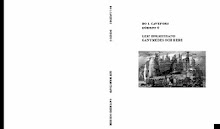



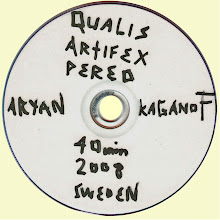



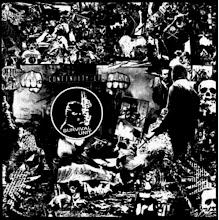






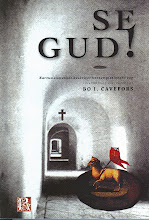






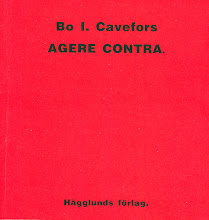









No comments:
Post a Comment